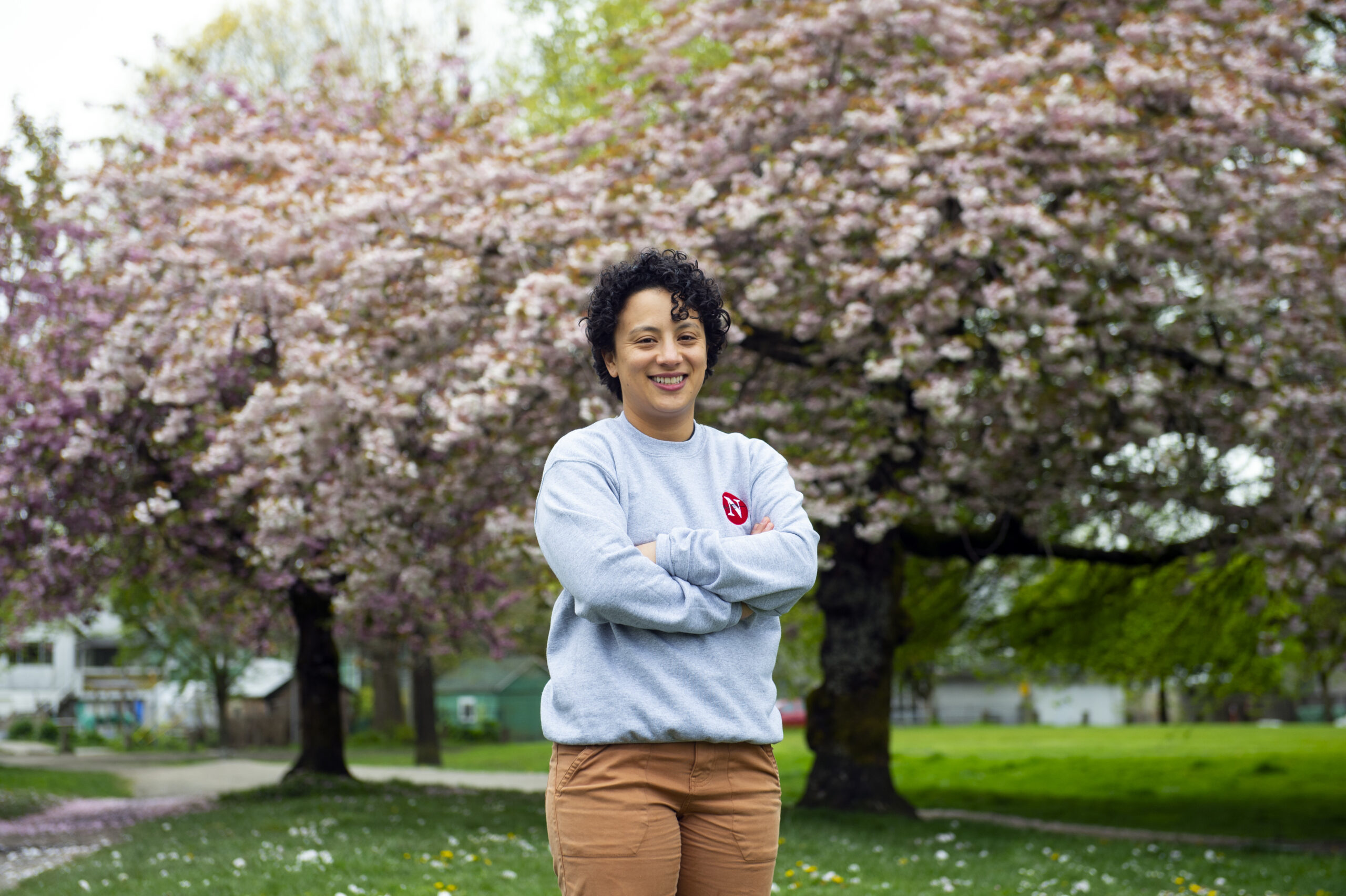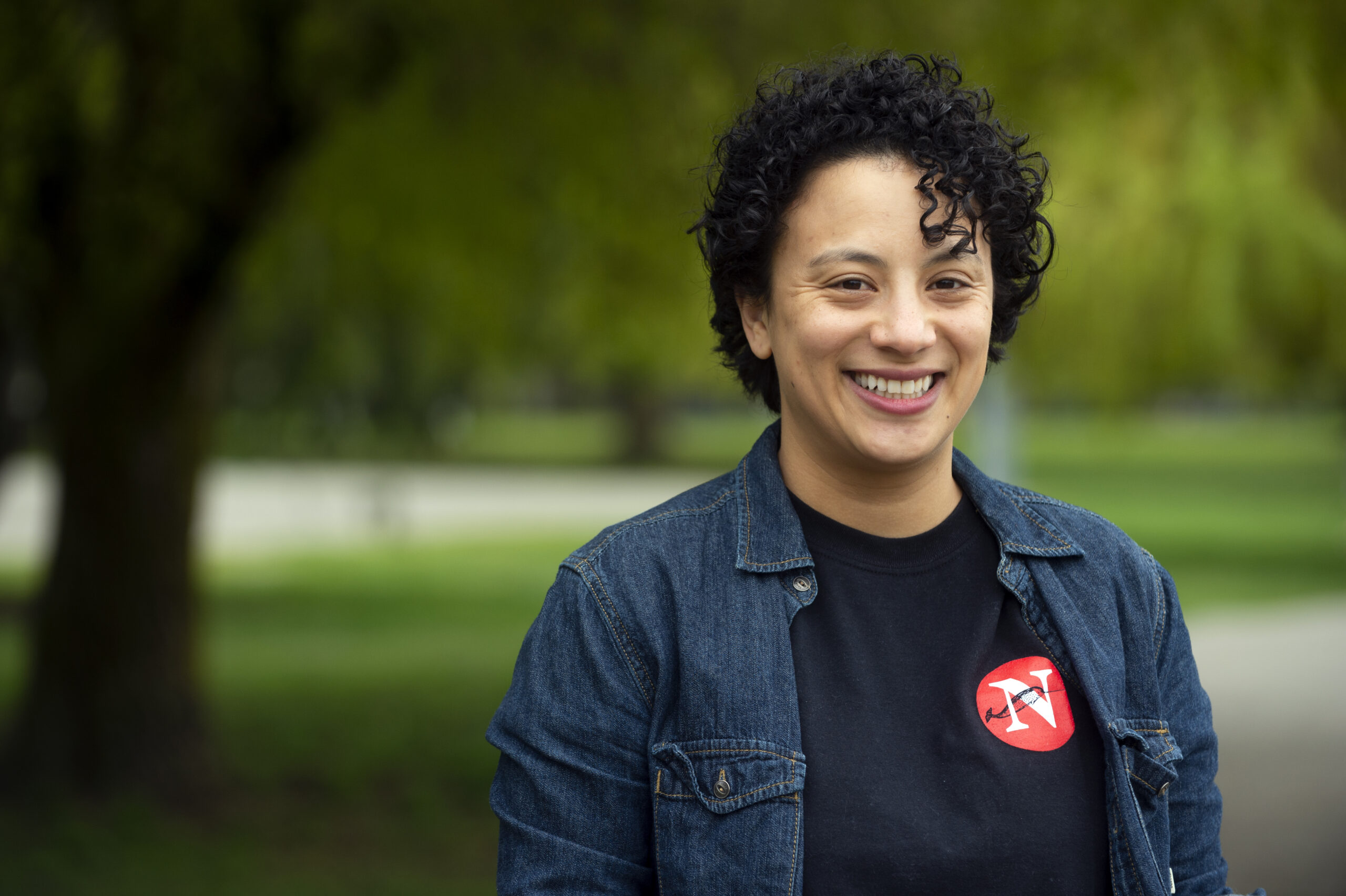
Hope for a huge, ancient and imperilled fish
First Nations are leading efforts to make sure lake sturgeon can find a home in...
The summer after university graduation, Francesca Fionda was dressing up in a thermostat costume, reminding people to turn down the heat.
At the time, she was working with BC Hydro on their outreach team. Part of that job was answering questions about the electric utility from the public and the media — sometimes in a mascot costume. While throwing the first pitch at Vancouver’s Nat Bailey Stadium dressed in a TV costume was fun, she started to think that answering questions with a script wasn’t nearly as interesting as asking them. So she decided to enroll in journalism school.
It was a good decision.
Since graduating from the British Columbia Institute of Technology, she’s worked on investigative teams with the three major news broadcasters across Canada and produced meaningful journalism at start-ups and local journalism outfits in her home-province of B.C.
Francesca has a deep love for research and data journalism. She was recently awarded the first ever Lieutenant Governor’s BC Journalism Fellowship for an in-depth project looking at the challenges of people who have been evacuated because of climate disasters. She’s excited by data visualizations and documentaries. When she isn’t in the newsroom, Francesca’s in the classroom teaching data journalism at the University of British Columbia.
She joins The Narwhal as our mining reporter, where there’s no shortage of spreadsheets to scroll through and questions that need to be answered.
I spoke with Francesca about where her curiosity is headed and her love of bad jokes.

The prospect of puns. I get to say I’m digging deep on a story and actually mean it. Puns are a miner inconvenience to some, but for me they are the gold nuggets of jokes. There’s a lot at stake when you attempt a pun. Sometimes they don’t pan out and you feel like you’ve hit rock bottom, other times you find a gem.
Okay, I’ll stop. There are so many interesting and important mining stories waiting to be told. Mining is a fairly new topic for me. I’ve reported on stories about resource extraction, covered the unsafe practices at a coal mine in Nova Scotia and toxic dust at Giant Mine in Yellowknife, but my mind is totally open to learning. I’m really excited to start this beat for The Narwhal and invite readers along. I hope people will email us to share what mining stories they want to read and what questions we should be asking.
There’s so much information out there and it can be really overwhelming. Sometimes that information is misleading and we’ve seen that lead to polarization and division. I think journalists have a huge role to play in not just providing reliable information, but also bridging divides. That starts by decolonizing our reporting practices and taking time to build trust with communities and folks we speak with.
I think a big part of a journalist’s role is to give people information that they can use to make decisions about their lives — whether it’s how you commute or who you vote for. Journalism is one way society can hold power to account, whether that’s corporations, governments or businesses. Individuals have a lot of power but, when it comes to the climate crisis, it’s organizations that have the biggest impact on our planet.
There’s a lot of climate anxiety out there. It’s real, it’s stressful and it’s growing. We can help people find ways to channel anxiety into action by highlighting solutions and what’s working. Along with highlighting the challenges we are facing, we need to report on what good is happening in the world too.

I am really inspired by the independent media outlets that are based here in B.C. The Tyee is somewhere that I also report and I really value the work the team produces. IndigiNews is another outlet that I’m inspired by because they’re really challenging the way that journalism is done and taking on a lot of work to decolonize journalism. I also love following the beautiful and creative work produced by data journalist Mona Chalabi.
Get locked in a room and try to puzzle my way out. It’s super relaxing. I’m talking about escape rooms. I love trying to solve riddles and mysteries. I’ve also played field hockey for almost 20 years now and play in a competitive league. In Vancouver, we are pretty lucky that we can play outside and enjoy the outdoors all year; rain or more rain.
Get the inside scoop on The Narwhal’s environment and climate reporting by signing up for our free newsletter. Angello Johnson’s shoulders burn, and his arms...
Continue reading
First Nations are leading efforts to make sure lake sturgeon can find a home in...

We’re excited to share that an investigation by The Narwhal is a finalist for the...

A new documentary, Nechako: It Will Be a Big River Again, dives into how two...
